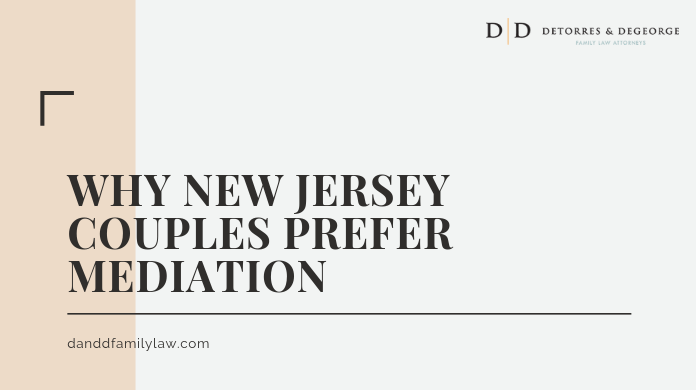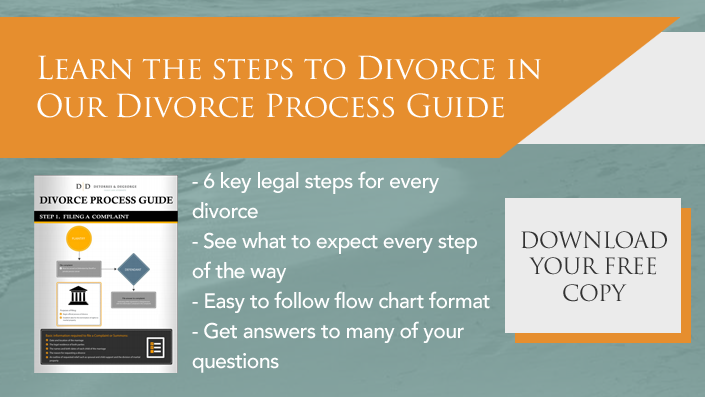
Divorce and family law issues are incredibly personal, emotional events in a person’s life. While the range of emotions certainly varies based on the specific circumstances of each case, all of the parties involved are dealing with the struggles of dividing the family and its property. Some parties wish to forge ahead into the world of litigation, while others want to do anything but that. Fortunately, there are other options – known as alternate dispute resolution methods – that these couples can turn to in order to move forward with their divorce in a way that better suits their needs.
Below, we have highlighted some of the reasons divorcing parties may choose to pursue one particular alternate dispute resolution method, known as mediation. When choosing mediation, the parties will hire a neutral third party, called a mediator, to help them resolve the issues in their divorce. The divorce mediation professional does not make decisions for the parties, but rather serves as a resource for helping the parties figure out what is best for them and their families.
More Privacy
Many parties do not realize until they are engaged in the litigation process that, with very limited exceptions, family court proceedings are considered “open.” This means that the courtrooms are open forums and are often occupied by additional parties who are going through something similar, as well as potentially family and friends of those parties, and individuals who are working in a different area of the courthouse, or perhaps attending law school.
Many people do not wish to discuss the specifics of their finances or the details of their marriage with their counsel and judges in front of strangers. While emotional, divorce is also a deeply personal process, and many prefer to keep it as private as possible. This is often where NJ mediation becomes a good option, as mediation sessions generally include only the parties and their respective attorneys.
Additionally, the divorce and family mediation process is confidential, meaning that the mediator cannot later be called as a witness in a trial to testify as to what was discussed at mediation. In situations where the mediator meets with each party and their attorney separately, the mediator may even have information from one party that he or she is asked not to share with the other. This permits a level of trust and comfort with the mediator that may aid in reaching a settlement.
If the parties are able to reach a settlement of their issues, they will go to court to put through the divorce, often with that being their first courtroom experience in their matter. While a party’s attorney and the judge will question those parties about their agreement and whether they believe the agreement is fair, the judges do not read the agreement or otherwise pass judgment on it. Therefore, the judge will put through your divorce without specific details of your marriage or finances being disclosed verbally, ultimately protecting the parties’ privacy.
Move At Your Own Pace
NJ Mediation also allows the parties to move at their own speed, whereas filing a complaint with the court means that your time frames will be dictated by the court. Some parties prefer mediation for exactly this reason.
The timing of mediation sessions varies depending on how much preparation work is done in advance. For instance, some cases go to mediation having already exchanged Case Information Statements and any requested financial information, such as bank accounts or retirement account information. In these cases, it is likely that the mediator can immediately begin to discuss the details and issues of the case as they have been laid out by the parties. In other matters, the parties may go to mediation with just a rough idea of their finances and a general understanding of the process.
Depending on the complexity of the matter, the parties may be able to move ahead with mediation immediately, or they may agree that they need some time to obtain more documents and information before moving forward. Either way, they are able to make those decisions for themselves, rather than being bound by the court’s timeline. In many circumstances, this will also allow a party to preserve finances as there will be less need for court-mandated processes and proceedings, such as the exchange of formal discovery and attendance at court hearings.
If you are interested in learning more about NJ mediation and how you can use it in your divorce process, contact the attorneys of DeTorres & DeGeorge today to schedule a consultation.


 START LIVE CHAT
START LIVE CHAT










